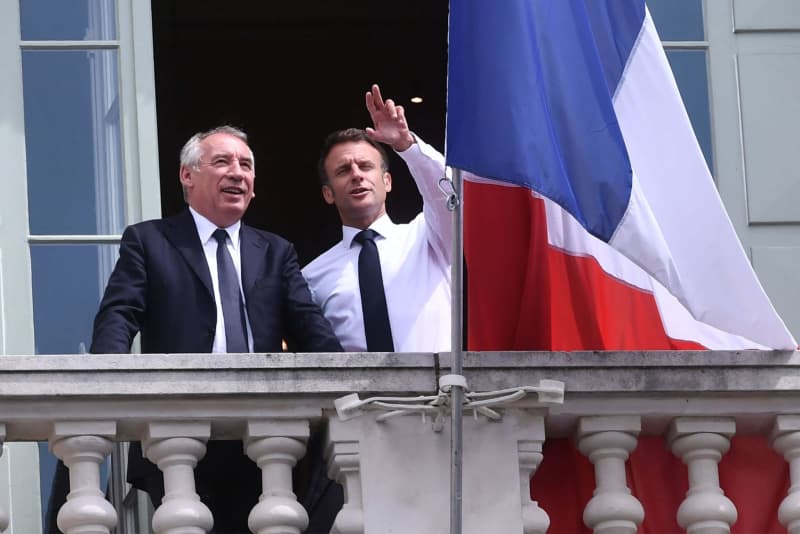The appointment of François Bayrou as France’s new Prime Minister has elicited a varied response from senior politicians, reflecting the ongoing political turbulence in the country. Just a week prior, the government led by conservative Michel Barnier fell due to opposition discontent over austerity measures, prompting President Emmanuel Macron to seek a successor capable of garnering broader support. The political landscape is fractious, and it remains uncertain whether Bayrou, a centrist, will navigate these challenges more effectively than Barnier. Critics from the left, particularly Manuel Bompard of La France Insoumise, have already called for a vote of no confidence against Bayrou, asserting that his removal could lead to Macron’s resignation. Meanwhile, Marine Tondelier from the greens threatened similar actions if Macron fails to change his policies, while the far-right National Rally expressed its intent to observe Bayrou’s performance before making a decision.
In light of political deadlock following inconclusive elections in June and July, the situation has grown precarious. France is grappling with significant economic challenges, including surging national debt and a substantial budget deficit, compounding calls from opposition parties for Macron to resign amidst these crises. With the 2025 budget yet to be approved, tensions are high as the country finds itself unable to navigate its fiscal obligations effectively. Facing dwindling support, Macron remains resolute in his intent to serve out his term until 2027 and has deflected criticisms while blaming the extremes of the political spectrum for contributing to the current instability.
The National Assembly currently reflects a divided political landscape with three distinct factions: left-leaning parties, Macron’s centrist bloc, and right-wing nationalists led by Marine Le Pen. This fragmentation has made governance increasingly complex, as evident in the coalition that resulted in Barnier’s ousting. For Bayrou, the immediate challenge will be to form a government that can attract broad support without formalizing a coalition, which poses its own difficulties given the divergent ideologies across the political spectrum. The hope is that with cooperation on fundamental budgetary concerns, there can be stability in governance without the immediate threat of a no-confidence vote.
Following his appointment, Bayrou articulated a desire to bridge the substantive divides within French society and expressed an understanding of the uphill battle he faces. He acknowledged the difficult climate and emphasized the necessity of fostering constructive dialogue between citizens and government. His promise to “tear down the glass wall that has been erected between citizens and power” reflects an awareness that public disillusionment with political institutions is a significant barrier in addressing the country’s pressing issues. However, the alignment of opposing political factions during the previous government’s downfall indicates that establishing consensus is far from straightforward.
Given France’s constitutional restrictions, a new parliamentary election cannot occur until a year elapses since the last vote in July. This structural limitation means that Bayrou and Macron must maneuver within a fixed legislature to ensure the government maintains operational continuity and avoids a total collapse. As political tensions rise, the immediate roadmap likely involves negotiating a budget that can satisfy diverse party expectations while preventing further fragmentation or a parliamentary crisis. Bayrou’s experience and political acumen will be critical as he seeks to navigate these challenges in a divided assembly essential for enduring governance stability.
In his initial remarks after the appointment, Bayrou showcased a blend of ambition and realism, recognizing the complex dynamics at play. Macron’s assertion of responsibility for the safeguarding of state institutions and the citizenry’s welfare implies an enduring conflict between maintaining diverse political interests and achieving necessary reforms. As such, the interplay between political cooperation and opposition pressure will define Bayrou’s tenure as he strives to lead the nation through this turbulent period and attempt to rebuild fractured trust in governmental institutions and processes. The unfolding political scenario remains a nuanced and intricate narrative, underscoring the challenges of coalition governance in a divided Europe.

